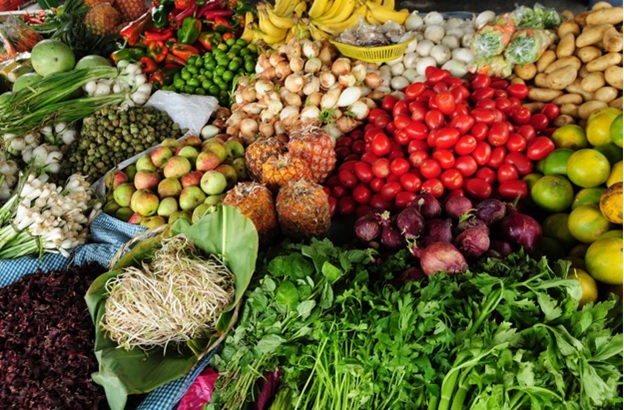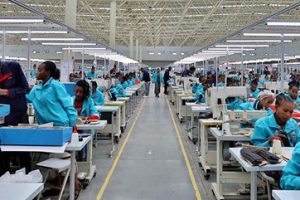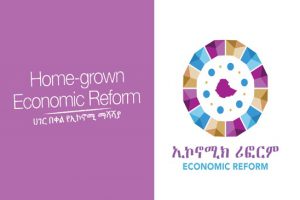
Currently, Ethiopia obtains 76% of its export earnings from its agricultural products such as Coffee, Oilseeds, Chat, Pulses, Cut Flowers, Fruits and Vegetables. Dairy and meat contribute some amount. The first 5 commodities cover 28.7%, 14.5%, 11.4%, 10.2% and 9.6% of the volume exported in 2019/ 2020 respectively.
Major export destinations in the mentioned budget years included Asia (41.6%), Europe (25.4%), and Africa (20.8%). The export trend of the country shows that high-value market crops are not significantly targeted because destination countries import regulations inhibit them.
This is not always by choice but with the existing agricultural value chains. Exporters do not produce the products because their business is supplying agricultural outputs to the market and have no or little control over the quality of the products. Whole sellers who perform their trade with strict regulations and parameters face difficult to get access as per the quality the market demands.
High-value agricultural products market destiny like the EU or Scandinavian countries have stringent requirements with little room for tolerance. Therefore, implementing an effective quality control system is fundamental to improve Ethiopia’s agricultural products export volume and export earnings.
Experts emphasize that agricultural products exporting countries need to get more competitive and comparative advantageous to tap the international market.
Actions that are taken to avoid internal bureaucratic hurdles and obstacles in the value chain improves the quality control system and creates competitive spirits of the private sector and inspires exporters to supply higher value commodities.
Therefore, it is high time to implement timely and proper policy measures to improve the value chain of agriculture products export supply. Effective policy implementation immensely contributes to augment Ethiopia’s export in which not only benefit the exporters but also the producing farmers.
According to the research conducted by Precise Consult International PLC, the agriculture sector faces different qualityrelated problems including contamination, poor post-harvest handling, adulteration, differing products size and color, lack of traceability, lack of standards for certain products, and lack or incomplete market information among others.
The main reason for pervasive poor quality of products supplied to the market is lack of comprehensive quality regulatory framework compromise the businesses performance integrity and ultimately put the nation in the disadvantageous position.
One of the factors discouraging the private sector not to unleash its full potential is lack of sufficient cooperation in the part of the public institutions which creates inconvenience to conduct its activities in a speedy manner.
The observed short comings associated with lack of coordination between various offices, gaps in implementation of rules and regulation, poor efficiency in agricultural marketing staff members makes doing business much cumbersome.
Agri-business Consultant at Precise Consult International PLC Helen Getaw told The Ethiopian Herald that private investor’s participation in the agriculture sector is fundamental to boost production and productivity. Ensuring quality of products play pivotal role in generating more hard currency from the sector.
Paying little attention to the agriculture sector in getting access to finance, shortage of credits and agricultural insurance service, absence of saving culture and lack of durable policy and strategy which promote supply and export are identified as policy gaps and challenges.
It is known that, most of the Ethiopian agricultural products are harvested in their organic form which gives more impetus to increase demand in the global market.
As to her, Horticulture, coffee, soybeans, oilseeds, grains, among others expected to dominate the Ethiopian agricultural products export volume in the future. Obtaining international certificates for healthy and quality agricultural products enhances the country’s efforts to penetrate the outside market and increase export volume.
The ongoing policy formulation which encourages the supply of quality products to the market prepared by the Ministry of Trade also facilitates the market channel and easing obstacles which hampers reaching international agricultural markets. Promoting financial accessibility, lease financing, agriculture insurance, among others contributes to farmer’s and private sector practitioner’s engagement in supplying quality agricultural products to the global market.
Agricultural extension experts in the Ministry of Agriculture are expected to build their capacity to enable farmers and other agricultural producers to promote quality harvesting. Thus, the government is expected to work hand in hand with pertinent stakeholders, deliver agricultural inputs timely, and introduce new technologies to boost production and productivity, she recommended.
Mihiret Teamir Precise Consult International PLC Agriculture sub-sector Project Coordinator said that setting innovative policy paves the way to improve the agriculture sector performance. Availing enough financial supply and subsidizing the agriculture sector is crucial to address the sector gaps.
To ensure Agricultural growth, structural transformation, and economic development in the country and “accelerated agricultural financing” are the recommended policy direction.
Accordingly, tasks that are required to enhance financial accessibility to the agriculture sector in general, and smallholder farmers in particular which includes the formulation of comprehensive and practical policies on agricultural finance and development of regulatory frameworks, expanding of financial institutions which can reach the poor farmers such as farmers’ cooperatives and unions which provide financial credit and agricultural inputs.
In addition improving smallholders’ financial services utilization through financial literacy is essential. Moreover, setting up institutions providing services to smallholder farmers and pastoralists on business development, credit appraisal services, and follow-up and evaluation of credit utilization is important.
In addition, reorganizing an independent body promoting and knowledge-based and accessible insurance services for agriculture are helpful to tap the sector’s potentials.
The experts recommended various policy options to enhance the country’s agriculture sector’s competitiveness in the global market. Setting up quality control mechanism at primary markets with improved quality control infrastructure enables to take corrective measures when poor quality product is supplied as well as avoiding mixing up of poor and good quality products together.
Raising awareness of actors in the value chain of agricultural products market with regard to the value of good quality in determining the price and providing the extension package as well is essential.
In addition providing contract to the private sector to engage in farming enables to raise productivity and increase the quality of products. Having a system which is timely and adopt testing parameters of commodities based on international market trends enables to stay competitive.
The Ministry of Agriculture is a pertinent institution engaged in supporting farmers who grow crops selected for export. It provides trainings, extension services and agricultural inputs and farming techniques to farmers.
Based on the agro –ecological suitability, preference and market comparative advantage fruits and vegetables are produced in the rift valley region both by small holder farmers and local and foreign private companies.
The private sector in this regard enabled to create job opportunities to hundreds. In addition, the venture facilitates knowledge and technology transfer.
The area currently has become the breeding hub of Vegetables such as grape, avocado, cabbage, carrot tomato and onion. The newly constructed rail- way between Djibouti and Addis Ababa helped to rapidly export to port of Djibouti. The mentioned vegetables and fruits have high demand in Djibouti and the middle- east as the result, it was possible to boost export earnings.
According to experts there are arable lands particularly in the law land parts of the country suitable for the cultivation of fruits but due to the absence of efficient institutions from the regions to the woreda level access to land is very cumbersome which intern shay away private sector from engaging in farming hence, pertinent officials should pay attention to the plight of the investors.
BY TEWODROS KASSA
The Ethiopian Herald 18 February 2022




